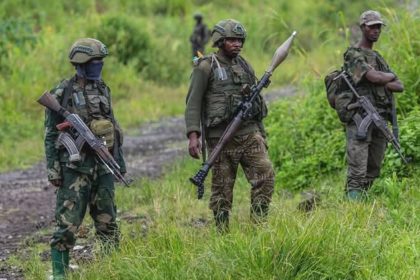For Tulinawe Kabaami in Western Uganda at Hoima Regional Referral Hospital, her world has been turned upside down. Her 3-year-old son has been battling severe malaria for five agonizing days. As she anxiously watches over him, her eyes reveal the despair and frustration felt by countless families across Africa grappling with this persistent disease.
Tulinawe recounts the harrowing journey from a local health center to the regional hospital, where her son’s condition only worsened despite initial treatment. “He became weak one evening, and I gave him medication, but he didn’t improve. The next day, he fell down and became unconscious. I rushed him to the hospital where he was treated but had to be referred here due to severe conditions,” she explains. Despite receiving mosquito nets from the government, they remain unused, highlighting a critical gap in malaria prevention.
The financial burden on Tulinawe’s family is substantial. They’ve already spent around $100 on treatment—a considerable sum that forced them to sell property to cover costs. The government, grappling with its own challenges, struggles to fund malaria treatment adequately after being advised by donors in March to shoulder the responsibility independently.
Dr. Gilbert Ategeka, a pediatrician at the hospital, underscores a troubling trend. He reveals that three out of ten children admitted test positive for malaria. “People now have fish; they use them for fishing. But the government needs to teach people how to properly use mosquito nets and the economic costs of malaria treatment. If a family member is sick, it affects the entire household—children miss school, and money is diverted from other needs. The government and Village Health Teams (VHTs) need to be more proactive in educating people about malaria prevention,” he asserts.
Globally, the fight against malaria has seen significant investment, with $3.5 billion dedicated to combating the disease. However, experts warn that more than double this amount is needed to meet the 2030 elimination target. African governments, already strained by weak health systems and limited resources, face a daunting challenge.
At the World Health Organization (WHO) Regional Committee for Africa meeting in Brazzaville, the RBM Partnership highlighted a concerning resurgence in malaria cases and deaths, particularly across Africa. Despite considerable progress over the past two decades, malaria continues to claim lives at alarming rates. Dr. Michael Adekunle Charles, CEO of the RBM Partnership, describes the situation as an “unacceptable injustice.” He emphasizes that malaria’s impact is exacerbated by vulnerabilities such as displacement, conflict, and gender inequalities, which compound the difficulties of eradicating the disease.
The RBM Partnership’s meeting with African leaders shed light on the resurgence of malaria, which had previously seen significant progress. Dr. Charles points out that while innovation has prevented 11.7 million deaths, recent years have seen a troubling increase in malaria cases. Africa remains the hardest hit, with over 90 percent of malaria cases and deaths occurring on the continent.
“This disease intersects with other inequalities and primarily affects people in a continent facing complex challenges. When malaria combines with poverty, conflict, displacement, climate change, and gender inequalities, it creates an injustice that widens the gap both within Africa and between Africa and other parts of the world,” Dr. Charles asserts. He calls for a multisectoral approach that acknowledges and addresses malaria’s intersection with other development issues.
Dr. Charles also highlights the biological threats posed by malaria parasites resistant to treatment and mosquitoes resistant to insecticides. “We must act swiftly to outsmart the disease before it outsmarts us. It is unacceptable that while much of the world has eliminated malaria, Africa still struggles with it. This indicates that we are not doing enough to end malaria,” he warns.
An estimated 70 percent of global malaria deaths occur in 11 African countries: Burkina Faso, Cameroon, the Democratic Republic of Congo, Ghana, Mali, Mozambique, Niger, Nigeria, Sudan, Uganda, and Tanzania. These countries, often ranked low on the Human Development Index, are crucial to the global fight against malaria. In March, these nations signed the Yaoundé Declaration, pledging to intensify efforts to eliminate malaria and reduce deaths.
Despite the Sustainable Development Goals (SDGs) prioritizing malaria elimination by 2030, funding remains insufficient. Only $3.5 billion has been invested in malaria efforts—less than half of the $7.3 billion needed to meet the 2030 target. African governments, already grappling with weak health systems and stalling development, face a $1.5 billion budget shortfall. Without increased funding, the RBM Partnership warns that malaria deaths could double, echoing worst-case scenarios predicted during the COVID-19 pandemic.
The urgency to address this crisis cannot be overstated. As Tulinawe Kabaami’s story illustrates, the struggle against malaria is not just a public health issue but a profound humanitarian crisis. The global community, alongside African governments, must act decisively to close the funding gap and tackle the evolving threats posed by malaria to avert further loss of life and suffering.




